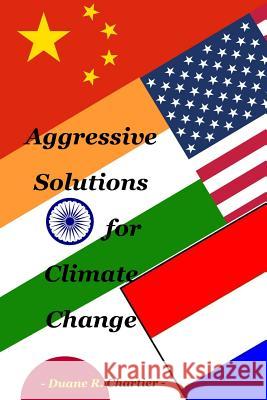Aggressive Solutions for Climate Change » książka
Aggressive Solutions for Climate Change
ISBN-13: 9780970611529 / Angielski / Miękka / 2017 / 170 str.
Climate change is, perhaps, the biggest challenge to ever face us. It is here now, manifesting itself in changing sea levels, warming temperatures and shrinking ice, changing weather, increasing numbers and severity of extreme events, the arrival of new pests and diseases, and on and on. The world is rapidly becoming a different place than the one you and I grew up in. For our children, grandchildren, and posterity we need to manage our world in such a way as to meet this challenge. Time is running out. The science of climate is an exact science, based on observations and factual deductions from these. On the other hand, opinions expressed about climate change fall on a distribution from the most ardent nay-sayers to the most devoted believers. As with many phenomena, this distribution is naturally bell shaped with the majority bunched in the middle not feeling too strongly either way. The "average" person is neatly in the middle and most people are in this group. The deniers are at one end of the spectrum and those who demand extreme actions to address the changing climate are at the other. Many government scientists have not allowed to publicly speak about environmental issues such as this and were effectively silenced while climate change deniers had full rein to say anything, muddy the waters and delay action to effect real solutions. One of the book's proposed "solutions" is that scientists must become a strong voice for drastic changes in energy policy. It is interesting that discussions about nuclear energy have also seen a similar distribution shift with the nuclear industry being nearly silent in terms of promoting the importance and value of nuclear energy. Sadly, all involved in both issues seem to have lost their sense of humour along the way. Dr. Duane Chartier is intent on re-establishing the voice of the previously silent end of the spectrum on the two extremely important issues of the changing climate and the role of nuclear energy. This book fills an important gap by opening the dialogue to include those who understand the science and are alarmed at the potential for changing climate to alter the world in ways that will be difficult or impossible for future generations to manage. The book looks not only at the well-accepted current status of the climate, but also at the probable futures facing us. It identifies energy as being one of the major dimensions of the challenge and goes even further to suggest "no regrets" solutions which will develop existing and new nuclear technologies to be safe, clean, and economically sound. All this and it does so with a light touch and humor ranging from silly to deepest black.











